
Jan. 15, 2009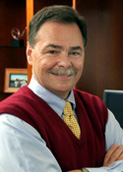 Fred Sanfilippo, MD, PhD |
I trust you enjoyed a pleasant and restful holiday and that you're looking forward to an outstanding 2009. As we begin this new year, one of the key priorities for the Woodruff Health Sciences Center—as for the nation—is improving the broken health care delivery system.
True health system transformation will be successful only when all sectors—public and private, state and federal, employer and employee, academic and corporate—come to the table for our nation’s greater good. The best and most sustainable solutions will also come when we fully appreciate not only the problems but also the many opportunities at hand that should drive health care transformation. I will discuss these and other issues more at length in a State-of-the-WHSC address on Wed., Feb. 18, at 4:30 p.m. in Cox Hall ballroom. I look forward to seeing you there. Meanwhile, best wishes for a happy and healthy new year, and thanks, as always, for all that you do to help us continue transforming health and healing … together. Please share your thoughts and feedback at evphafeedback@emory.edu. |
|||
Three steps to health care reform Clinic changes policy on drug samples $14 million to reduce tobacco use EHSO becomes Emory-wide operation
|
||||
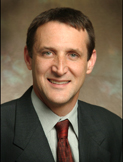 Christian Larsen |
Christian Larsen, MD, DPhil, has been named chair of the Department of Surgery at Emory University School of Medicine, surgeon-in-chief of Emory University Hospital, and director of surgical services for Emory Healthcare. In addition, he will become section head of surgery in The Emory Clinic, and he will hold the endowed position of Joseph Brown Whitehead Professor of Surgery. An internationally recognized leader in transplant surgery and immunology, Larsen currently is professor of surgery as well as associate vice president and executive director of the Emory Transplant Center, and he holds an endowed position as Carlos and Marguerite Mason Professor. He is an affiliate scientist at Yerkes National Primate Research Center. As surgery chair, Larsen will report to Thomas Lawley, dean of the medical school. As surgeon-in-chief and as director of surgical services, he will report to John Fox, president and CEO of Emory Healthcare. The appointment is effective Feb. 1, 2009. Larsen succeeds William Wood, who will step down after serving as chair of surgery for 17 highly successful years. Wood, who built the department to new heights of excellence in clinical care, education, and research, will intensify his focus on scholarly activities related to innovation in cancer therapy. Larsen became founding director of the Emory Transplant Center in 2001, building and directing one of the foremost research and clinical transplantation programs in the world. The Transplant Center now includes 200 physicians, nurses, dietitians, social workers, and scientists integrated to provide patient-focused, multidisciplinary care and multidisciplinary research. His clinical practice is focused on kidney, pancreas, and islet transplantation at Emory University Hospital and Children’s Healthcare of Atlanta. "Emory is most fortunate to have counted Dr. Larsen among our faculty as a leading transplant surgeon and visionary scientist, and we look forward with great anticipation as he continues to build and lead this outstanding department," says EVPHA Fred Sanfilippo. "As a fellow transplant immunologist, I am well aware of Dr. Larsen's excellence and renown as a researcher and a transplant surgeon and his dedication to team science and team medicine." "Chris Larsen would be the clear choice of countless academic medical centers for a clinical and academic leader," says Lawley. "We are tremendously pleased that after a stellar career at Emory as a student, surgeon, scientist, and administrator, Dr. Larsen will be assuming this critical leadership position in our Department of Surgery." "Dr. Larsen will champion and challenge our surgeons and staff, ensuring Emory as the leading destination for patients who seek 'top-tier' surgical care, and for surgeons who seek a leading edge, multidisciplinary, collaborative practice environment," Fox says. "His skills complement his commitment to patient- and family-centered surgical care, while sharpening Emory's leadership in providing exceptional quality in clinical outcomes." As chair, Larsen will serve as the senior physician executive for the Department of Surgery, providing senior leadership in all clinical, educational, and research endeavors. As surgeon-in-chief of Emory University Hospital and director of surgical services at Emory Healthcare, he will work closely with Fox to develop the clinical program involving surgical departments, plan new ambulatory and inpatient facilities, and be accountable for an effective effort to improve clinical quality and outcomes, surgical services effectiveness, and resource utilization. Read more. |
|||
|
Clinic changes policy on drug samples For years, doctors have taken for granted the option of giving patients free medicine samples. They did this as a convenience to patients, as a way to help them lower expenses or, occasionally, to try out a different treatment. This fall, the use of pharmaceutical samples ended at The Emory Clinic, based on a recommendation by physician leaders and support from colleagues. Pharmaceutical companies were notified that their representatives could no longer provide new samples to clinic doctors, and Emory Healthcare Pharmacy Services assisted in the collection of any unused samples. These medications were donated to a charitable organization in Atlanta for use in an indigent clinic. "The policy change represents a great deal of thought about what is best for our patients," says Penny Castellano, the clinic's chief medical and quality officer. The decision-making process included several considerations. First and foremost is the fact that pharmaceutical samples are used to market products, a process that many think should not include the physician. Current evidence suggests that use of pharmaceutical samples rarely helps decrease costs to patients. In most cases, only new, more expensive drugs are available as samples. Being able to hand these out to patients at first seems like a convenience and a free gift. However, patients may then end up getting a prescription for this same, often expensive medication, rather than for a less expensive choice that may be unavailable as a free sample. Sample distribution increases costs in other ways as well. Complying with increasingly stringent and complex regulatory requirements for housing, monitoring, and dispensing sample medications had become both onerous and costly, especially when patients had to be notified of any product recalls and withdrawals. Evidence suggests that providing patients free samples does not increase likelihood that they will take their medicines. In addition, the trial period needed to determine the effect of a medication usually exceeds the time that can be covered by samples alone. Finally, the use and availability of pharmaceutical samples has been shown in research studies to influence prescribing behaviors of providers. This type of potential conflict of interest is something that Emory Clinic physicians chose to avoid. Occasionally, individual patients will require special assistance to obtain or afford appropriate medications. With the help of Emory Healthcare Pharmacy Services, multiple methods for meeting these needs are being put into place so that patients continue to get the best care. |
|||
Bio stats: Contact:
|
One in a series of profiles of people in the Woodruff Health Sciences Center Bill Sexson is the medical school's man on the ground in the day-to-day clinical arena at Grady Hospital, the person who works most closely with chairs and faculty, the one who both puts out the fires and stokes enthusiasm. He has served as associate dean for clinical affairs at the hospital for more than a decade. He is also vice chair of pediatrics and a practicing neonatologist. His "dean" job is part quality control and part business. He works with medical school leadership to formulate annual budgets and determine priorities for resources in support of Emory's programs at Grady. (On any given day, roughly 1,000 Emory medical faculty, residents, students, and staff work at the Grady campus.) Sexson also works with leaders of the Emory Medical Care Foundation, which invests all payments for Emory-provided care back into Grady—last year $29.5 million. But Sexson spends most of his administrative time acting as cheerleader, advocate, and counselor. He helped coordinate faculty and student rallies in support of Grady last year, when fears ran high that the hospital would collapse under debt. As a familiar face in the state Capitol, he has assisted in getting a legislative bill passed on average every year to support the hospital and the care provided by Emory doctors and their colleagues at Morehouse. Sexson holds regular faculty meetings to address clinical practice matters and issues of concern. He makes sure that communication is strong between the clinicians at Grady and medical school leadership on Clifton Road, and he works to find solutions that serve both the school and hospital. He is increasingly involved with medical ethics—consulting, teaching ethics in professionalism (one of the core competencies in the medical school's training program), and helping develop ethics policy for Grady. And he serves as assistant director of the World Health Organization Collaborating Center in Reproductive Health. It all fits together, says Sexson. Early in his medical career, he realized that the health and well-being of newborns depended not only on clinical practice but on building and maintaining strong local, state, and global systems to improve pregnancy outcomes. In his personal life, Sexson is close to his goal of climbing all peaks in Colorado over 14,000 feet (46 climbed, eight to go). He plays guitar in a bluegrass group with Emory pediatric surgeon Paul Parker and others. An Eagle Scout, he works extensively with Troop 18 (the "Emory troop") and serves as health and safety chair for the Boy Scout's Atlanta area council, one of the largest in the country. |
|||
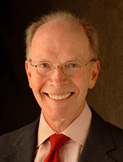 Jeffrey Koplan Jeffrey Koplan |
Emory receives $14 million to reduce tobacco use in China Emory has received a $14 million, five-year grant from the Bill & Melinda Gates Foundation to help reduce the burden of tobacco use in China. Emory's Global Health Institute (GHI), in collaboration with the Tobacco Technical Assistance Consortium of Emory's Rollins School of Public Health, will establish the Emory GHI-China Tobacco Partnership. The GHI will manage the partnership, which will collaborate with public health leaders in China to promote evidence-based approaches to reducing tobacco use that are tailored to the culture and circumstances of individual cities and provinces in China. The Emory GHI will also provide funding and support to establish national tobacco control resource centers in China. Jeffrey Koplan, director of the GHI, will serve as principal investigator of the grant. Read more. |
|||
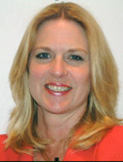 Patricia Olinger Patricia Olinger |
EHSO becomes university-wide operation Emory's Environmental Health and Safety Office (EHSO), formerly a division of the School of Medicine, has moved to the Emory Office of Research Administration and is now a university-wide operation. Patty Olinger is director of EHSO, and the main office is now located at 1762 Clifton Rd., Suite 1200, telephone 404-727-5922. "Demands for EHSO services have grown throughout the campus," says David Wynes, Emory VP for research administration. "These services span everything from laboratory safety through many aspects of facilities services and into the hospitals and clinics as well. The move from the medical school to a central administrative unit reflects the fact that this office serves that broader community. "We will work closely with facilities services and human resources as well as with Emory Healthcare to ensure that we are serving the larger community in all aspects," says Wynes. The four main divisions of EHSO are Research/Biological Safety, Environmental Affairs, Safety/Industrial Hygiene, and Radiation Safety. Detailed information about programs, administration, training, and contacts are available on the new EHSO website. Olinger says, "As a university operation, EHSO will adopt an enterprise-wide approach to risk management. A new environmental systems approach to safety programs, which will include new training opportunities, should lead to an enhanced safety culture at Emory." Advisory boards comprising executive administrators are currently being established. This April, Emory will participate in a peer audit program through the U.S. Environmental Protection Agency (EPA). Participating institutions from Georgia will visit the campuses of other colleges in the state and, with the aid of an environmental consultant, conduct an audit to verify compliance with EPA regulations. If there are situations where the institution is found to be out of compliance, they will be disclosed to the EPA, but EPA will impose no fines if these issues are corrected in a timely manner. Most EPA regulatory compliance issues focus on air quality, water quality, and chemicals. Areas that will be most affected by the audit include campus services operations, research and teaching labs, food service operations, some health care operations, and art and theater productions. To assist the Emory campus in preparing for the audit, EHSO began conducting a regulatory evaluation and internal audits last fall, distributing checklists to the affected areas. The "Current Initiatives" section of the EHSO website contains updated information about the audits, including the checklists. EHSO also is preparing for a radiation audit planned for this summer. For questions about the checklists or audit process, please contact Scott Thomaston at scott.thomaston@emory.edu or 404-727-1349. |
|||
 |
• New WHSC website Looking for a gallery of downloadable WHSC photos? For maps and directions to a WHSC building? For a list of all Emory faculty who are Georgia Research Alliance Eminent Scholars? For a downloadable PowerPoint of the WHSC's vision and goals? For WHSC vital statistics? For lists of all WHSC leadership? Find these and more at the newly redesigned WHSC website at emoryhealthsciences.org. The site is rich with easy-to-find resources pertaining to WHSC teaching, research, and patient care, including numerous links to the clinical consumer site at emoryhealthcare.org. Read more. |
|||
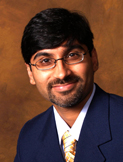 Hasan Shabbir |
• New chief quality officer at Emory Johns Creek Hasan Shabbir, associate medical director for quality at Emory Johns Creek Hospital since 2007, has been named chief quality officer. Shabbir completed a residency at Emory and has been a hospitalist at Emory since 2003. Read more. |
|||
|
• EHC receives GHA awards for quality and safety Earlier this month, Emory Healthcare received four quality and patient safety awards from the Partnership for Health and Accountability (PHA) during the PHA's annual patient safety summit. The awards were for the following: 1. Reduction of sternal wound infections EHC received more awards than any other health system. On EHC's behalf, Bill Bornstein, EHC chief quality officer, accepted the Circle of Excellence Award together with Susan Grant, EHC chief nursing officer. Sponsored by the Georgia Hospital Association, the PHA is a statewide collaborative that includes representation from hospitals, physicians, state health officials, legislators, and businesses. For more information, please visit the PHA website. |
|||
|
• Three inducted into AAAS Three WHSC scientists are among 486 honorees being inducted next month as fellows in the American Association for the Advancement of Science (AAAS): - Yerkes neuroscientist Jocelyne Bachevalier for her work on the role of specific brain structures in regulating social and cognitive behaviors. - Biochemistry professor Dale Edmondson for his research on the structure and mechanisms of flavins, including enzymes that are targets in development of drugs such as antidepressants and neuroprotectants. - Cell biology chair Barry Shur for his work on cellular interactions during mammalian fertilization and development. Go to the AAAS fellows website and search for Emory to get all of the Emory faculty who are current AAAS fellows. Read more about the most recent Emory inductees. |
|||
|
• WHSC applicants receive sustainability grants The university's Office of Sustainability Initiatives recently awarded annual grants, in this case all three of which went to people in the WHSC (read more): - Jaine Perlman, Yerkes staff member, and her colleagues in behavioral management to expand the educational food garden at Yerkes to provide more variety and volume of produce for Yerkes nonhuman primates - Kati Cooper, student at Rollins School of Public Health, to examine factors that lead to purchase and consumption of organic and sustainable foods - Gretchen Neigh, psychiatry faculty member, to explore practicing sustainability in 11 large departments at Emory. |
|||
• Register for research collaboration roundtable A collaboration roundtable sponsored by the Georgia Research Alliance, CDC, and CDC Foundation will be held Monday, Feb. 2, from 9 a.m. to 1:30 p.m. at the CDC Global Communication Center, 1600 Clifton Rd. (Bldg. 19). With the goal of stimulating research collaboration across CDC and Georgia academic institutions, the event will be a forum (with poster session) for scientists to share research interests and to learn about programs that fund collaborative research. Advanced registration is required by Friday, Jan. 16, 2009. See website to register. |
||||
• Save the date Please mark your calendars for Wed., Feb. 18, 2009, at 4:30 p.m. for a State of the Woodruff Health Sciences Center address by EVPHA Fred Sanfilippo in Cox Hall ballroom. Please plan to come and hear him share reflections on his first year at Emory and his vision for the future of the WHSC. |
||||

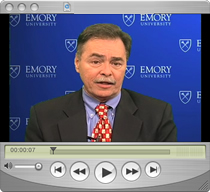
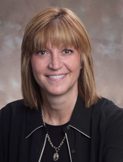 Penny Castellano
Penny Castellano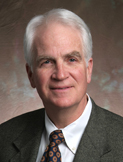
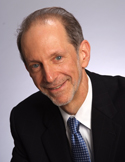
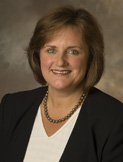
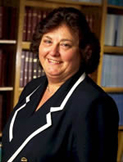 Jocelyne Bachevalier
Jocelyne Bachevalier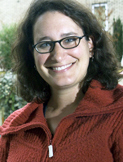 Jaine Perlman
Jaine Perlman